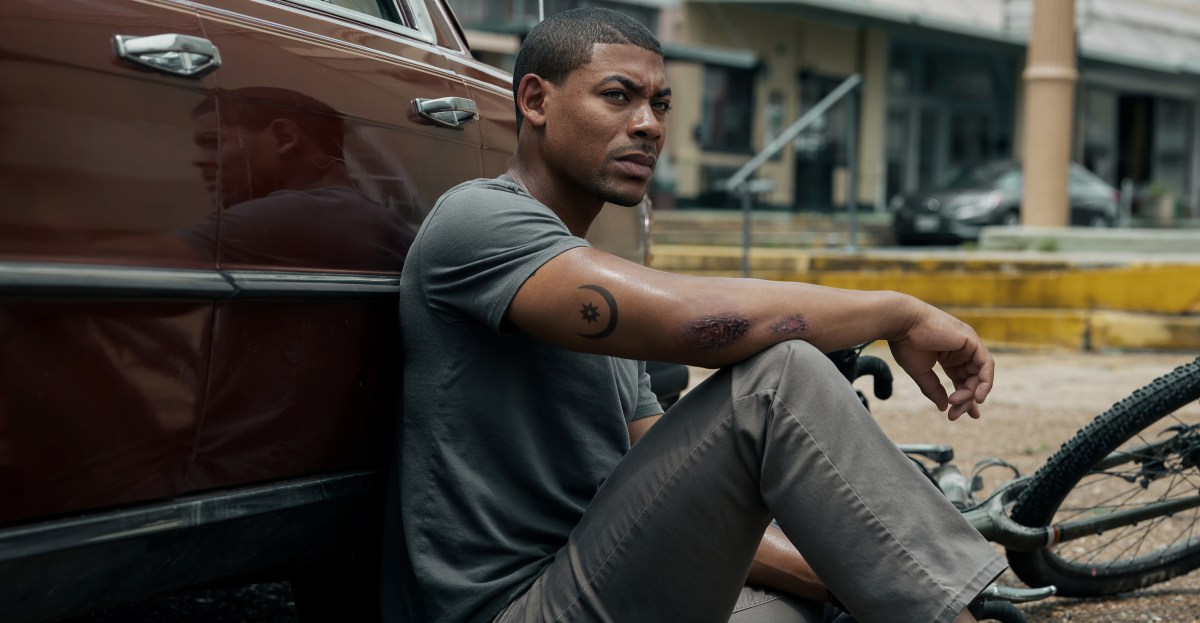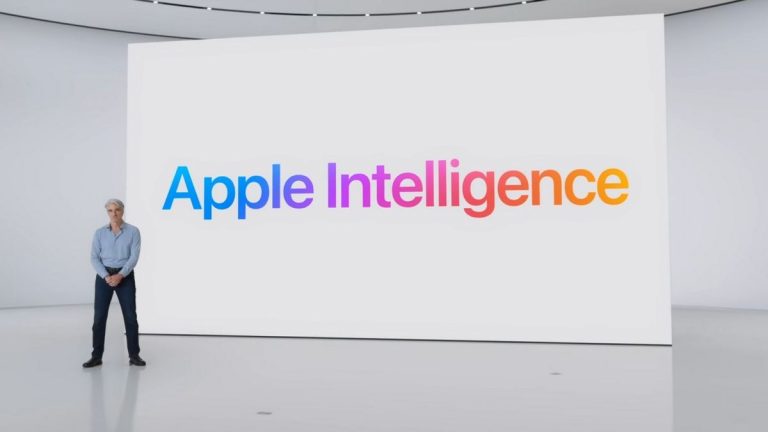Netflix’s motion film Insurgent Ridge takes on America’s large taboos, rigorously

Thriller followers know by now to maintain an eye fixed out for brand spanking new Jeremy Saulnier films. From his over-the-top horror debut Homicide Social gathering to the deceptively low-key one-two punch confrontation dramas of Blue Damage and Inexperienced Room to the viciously chilly William Giraldi adaptation Maintain the Darkish, Saulnier makes a speciality of moody movies punctuated by shockingly graphic violence that always catches his protagonists off guard.
The tones of those films fluctuate extensively, and so does their enthusiastic about how essential violence is, and what it does to the perpetrator. However they’re all visceral and memorable in numerous methods, they usually all flip bloodshed into an unsettling, momentous occasion — an actual achievement when working in so many genres the place violence is widespread and anticipated, each by the protagonists and the viewers.
The specter of violence hangs over almost each minute of his Netflix film Insurgent Ridge, debuting on the service Sept. 6. Ex-Marine Terry Richmond (Aaron Pierre, from The Underground Railroad and M. Night time Shyamalan’s Outdated) enters a small Southern city with a bag full of money, acquired to bail his cousin out of jail. Within the opening scene, the native police assault him and seize the cash underneath civil asset forfeiture regulation, claiming it may presumably be drug cash. The state of affairs escalates from there — nevertheless it’s a slow-burn, intentionally paced procedural of an escalation, roping within the native police chief (motion vet Don Johnson), a bureaucrat with secrets and techniques (AnnaSophia Robb), a revered native choose (James Cromwell), and plenty of others.
Forward of the film’s Sept. 6 launch, Polygon talked to Saulnier about threading the needle on a film about a number of the most polarizing, political points in trendy America, and about taking inspiration from Sylvester Stallone in First Blood, however not in the obvious methods.
Polygon: It is a film about a whole lot of various things, together with the injustice of civil asset forfeiture. But it surely’s additionally about race and white supremacy in policing, regardless that nobody within the movie overtly admits their motives or prejudices. The Southern setting, Terry being Black, native regulation enforcement principally being white, the particular position of the one cop who isn’t — it’s onerous to not see race as a significant factor right here. How did you method navigating that?
Jeremy Saulnier: It undoubtedly is there, however as you mentioned, not foregrounded — not as a result of I needed to draw back from it, however as a result of I simply needed to remain true to a sure narrative. Solid the most effective actors and let issues play out, and these broader themes come from the viewers. As a result of we made a degree to not go down that street, particularly because it pertains to Don Johnson and that character.
The first purpose right here was to make a standard American motion flick, with ideally extra artistry, a bit of headier. I wish to get into the very grounded nature, the trivialities different movies may cross by, so far as establishments go. Not simply because it pertains to race, however because it pertains to human beings in these techniques — what half they play, whether or not they’re conscious of it or not, or if they’re, how they select to disavow their duty, or ignore the truth that they’re perpetuating corrupt techniques. So these mechanics had been simpler to analysis and dissect.
When it got here to casting the film, I used to be simply looking for the correct actor to assist the film. The one actual factor on my thoughts — it’s written within the precise first draft of the script —, is that Terry is brown. […] It provides its personal context that doesn’t want any assist from me, or pushing.
And when it got here to these points, I actually drew a really onerous line with the narrative, the construction, the characters, the dynamics: As soon as Aaron got here aboard, I listened and I adopted his lead. He was very loyal to the textual content, he was very reverent to not solely myself as a filmmaker, however the whole crew, which supported him. He tried to offer it his all, bodily, emotionally. However when he had a difficulty as a Black man, [when something in the movie] mirrored his expertise, he was kindly vocal about it, and I adopted his lead. And that was a really synergistic means of working, the place I stayed true to what I knew as I developed the film, and was very open to listening when Aaron spoke up.
Are you able to level to something particular that he needed to debate or alter?
Numerous the particular conversations between me and the actors are personal, not out of sensitivity, however due to the protocol. Generally it could simply be vernacular, how he felt extra comfy expressing sure traces. And typically it was asking me a couple of larger, broader context of what a scene meant, what it may be referring to. And typically he’d say “Properly, OKokay, now that I perceive the implications and the references right here, I’d love to do this as a substitute.” And the reply was at all times sure.
That didn’t occur fairly often, however that’s how I knew it was necessary to him. The quantity of respect he gave the textual content, and the credit score he gave the collaborators that encompass him and help him, it was a extremely nice dynamic on set. However when he does select to inject one thing he feels obsessed with, it was a simple sure.
You talked about reaching again to basic American motion — this very a lot appears like a contemporary model of the 1982 Sylvester Stallone film First Blood, a minimum of when it comes to the story setup. Was that one in your thoughts as you had been making Insurgent Ridge?
The origin [of a project] is at all times onerous to hint, precisely. However civil asset forfeiture intrigued me, and I assumed it could be an awesome inciting incident for a movie. And after I began to consider the narrative, and analysis it, I used to be bombarded by all this injustice. It was actually infuriating. I assumed it’d be a good way to get folks behind a protagonist. It’s a authorized follow, nevertheless it’s inherently unjust, and it unifies all people, as a result of it’s universally reviled as a follow. As soon as that story began to evolve — this film was extra [Clint] Eastwood after I began out, it was extra the Man With No Identify. Terry rides into city not on a horse, however on a motorcycle, nevertheless it was a Western style film, so far as I used to be involved.
As soon as I noticed this movie would pit a single protagonist in opposition to a small-town police pressure, in fact, First Blood was the first reference I used to pitch this as a completed script. However [Terry in Rebel Ridge and John Rambo in First Blood are] very, totally different characters. They share a number of issues, they’ve a army background, however that’s about it. Terry is cerebral. He is a good communicator. He’s making an attempt his easiest to earn and dish out a degree of respect.
I assumed it’d be attention-grabbing to discover the dynamic of a army veteran whose first fight expertise was inside the USA of America. However texturally, First Blood undoubtedly was a part of my look-book bible. The cinematography, how they built-in the plush panorama into the story — like when Stallone hops on that bike. Seeing the exhaust from the bike, and the way it climbs up a muddy path, and the way the incline will get too excessive, and he falls off — it’s actual folks doing actual issues, simply simple.
And that’s the extent of filmmaking I used to be actually desirous to carry again into the sphere. I miss issues that look actual, which have people on the helm, which can be a bit of sloppier and extra grounded, and tied in emotionally with the on-screen motion.
Trying again on all of your earlier movies, one of many issues that basically unites them is the concept of individuals getting in over their heads in violent conditions the place they don’t essentially have the expertise or the instrument equipment to reply. Having Terry be a army veteran felt like a departure — however the way in which you describe it, it looks as if you had been taking a look at it equally.
Properly, I feel you’re spot-on, in that he’s a extremely competent, expert skilled. He’s portrayed as whip-smart and really disciplined. You get the concept this man is an excellent communicator, however as a result of he’s a standard badass action-movie hero, in comparison with my earlier filmography, I did discover a option to put him within the combine as a fish out of water. Watching him flail in a forms in a small-town court docket, within the halls looking for out who to speak to, having that nightmare customer support expertise thwarting him, simply making an attempt to remain on the rails and having no luck navigating this convoluted, stifling system.
If there are two issues in America we’ve got a tough time speaking about in any respect rationally, it’s race and any flaws in policing. There’s a lot pushback in opposition to even acknowledging bias or injustice in American policing, not to mention addressing it. What sort of calculations did you must make round that?
Oh, I’ve to utterly ignore that. As a filmmaker, when you go by that system of like, “What’s the web gonna say?” you then may as nicely keep dwelling. You possibly can go tweet what your favourite ice cream is, and [people will respond] “You then clearly by no means tasted this!” or like, “How dare you, when this producer is…” It’s ineffective.
There’s no ambassadorship that Aaron has to tackle as an individual. He’s greater than an ethnicity. He is without doubt one of the greatest actors I’ve ever come throughout in my life, and I’ll permit him the time and area to outline how that serves us as a filmmaking group. So inside the context of the movie, I let Aaron take the lead. I don’t fake to have any particular data, or communicate for any group of individuals, in regards to the charged nature of American policing.
I really did tons of analysis. I pulled some dialogue from precise dashcam movies. However in Insurgent Ridge, the purpose was really simply to verify I didn’t lean into any polarized views. Definitely we’ve got a transparent protagonist and a transparent antagonist. However the problem for me is not only to carry issues down, so far as making all people a human and having an opportunity to talk their reality, whether or not or not I’m rooting for them, or the viewers will get behind them. It’s necessary that I create this battle area with characters that appear actual, they usually have actual strain and actual plights, in order that when this pure confrontation happens, there’s actual vitality. Actual characters create actual drama. And that’s what I’m going for.
Aside from that, I let the analysis dictate the extent I used to be going for, so far as the truth. […] Civil asset forfeiture is authorized. If it’s not authorized in your state, you’ll be able to bypass it and join it to federal authorities, and nonetheless discover methods to grab residents’ property with out tying it to a legal cost. [I found] ranchers out in Texas that had been having their complete property seized, and all of the farm gear on it, as a result of they’d a few marijuana crops on the property. Poker gamers getting $100,000 stolen as a result of they had been crossing state traces with money, and accused of being drug sellers.
And the onus is at all times on the sufferer to show the place the cash got here from. They usually use it in opposition to you as leverage. “You gonna rent a lawyer? Spend a pair years [chasing this]?” They are saying, principally, “We’ll take the cash and preserve it. We’ll allow you to go, however when you come after it, we’ll file legal costs in opposition to you.” That’s a simple option to put on down the victims. So I used to be simply going for a great old- normal American motion film, like a First Blood, Michael Clayton, Excessive Plains Drifter. It was about staying true and staying tactile, so far as my method as a filmmaker.
Insurgent Ridge debuts on Netflix on Sept. 6.








